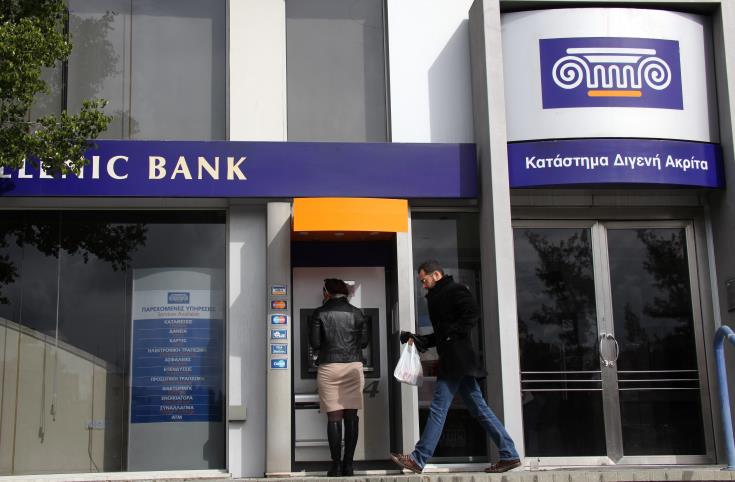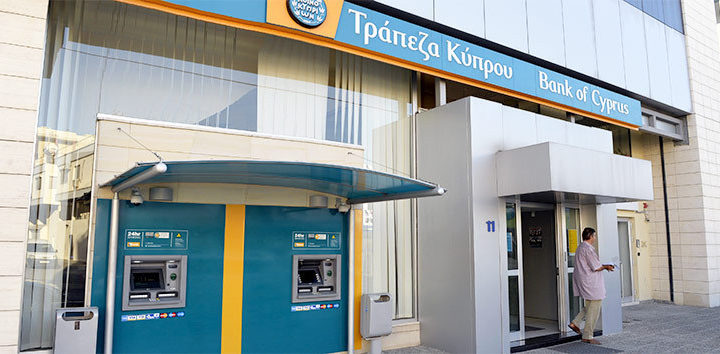Capital Intelligence upgraded most of its rating for Hellenic Bank a day after the CEO returned to work after being cleared of any wrongdoing in a CySEC probe into alleged market abuse.
Oliver Gatzke was back in his office on Monday following the lifting of the board’s decision to sideline the German pending investigation into market manipulation.
The tension between the bank’s CEO and shareholders exploded at the AGM held in September, when the then-largest stakeholder, Demetra Holdings, essentially accused Gatzke of wrongdoing.
Demetra Holdings CEO Nearchos Ioannou accused him of pressuring staff into buying shares.
Demetra, at the time, was Hellenic’s largest shareholder, with a 21% stake.
It is now second behind Eurobank Group, which increased its stake last month and now holds 26% of its capital.
Capital Intelligence Ratings raised almost all its metrics by one notch but warned that “although asset quality as measured by NPLs has greatly improved, uncertainties related to the effects of the conflict in Ukraine on both asset quality and profitability are likely to continue to constrain the ratings.”
It said the bank’s outlook could be revised to ‘positive’ if the planned non-performing loans (NPL) securitisation is concluded within the next six months and if there is a marked improvement in profitability at both the operating and net levels.
On the other hand, CI Ratings said the outlook could be revised to ‘negative’ or the ratings lowered if loan asset quality again worsens, “although this appears remote at this point”.
CI Ratings upgraded the Long-Term Foreign Currency Rating (LT FCR) to ‘BB’ from ‘BB-’ and affirmed the Short-Term Foreign Currency Rating (ST FCR) at ‘B’.
It raised Hellenic’s Bank Standalone Rating (BSR) to ‘bb’ from ‘bb-’
Outlook stable
The outlook for the LT FCR and BSR has been revised to Stable from Positive, while the bank’s Core Financial Strength (CFS) rating of ‘bb’ and Extraordinary Support Level (ESL) of Uncertain have been affirmed.
“The strongest credit strength supporting the CFS remains funding and liquidity.
“The bank enjoys a well-diversified and stable retail customer deposit base and has limited reliance on wholesale funding of any type.
“Liquidity metrics continue to be strong.
“The bank’s capital position is satisfactory and remains a credit strength. Headline ratios are strong, and capital quality is good.
“However, the ratio of unprovided NPLs to equity remains high, albeit on a significant downward path.
“It is worth mentioning that part of the gross NPLs benefits from what is tantamount to a 90% government guarantee; this allows HB to hold lower loan loss reserves (LLRs) than would otherwise be the case.”
CI Ratings argued that another main credit challenge is low profitability.
“HB reported an improvement in operating and net profitability in H1 2022 due to higher net interest income and lower loan loss provision expenses.
“However, the bank’s profitability ratios are still below the levels seen pre-2020.
“The bank will have to significantly grow both net interest income and net fee and commission income, as well as net insurance income, to improve its earnings strength.
“Additionally, higher cost efficiencies – something that will never be easy in the highly-unionised Cyprus banking sector – and continually low levels of impairment charges will also be required.
“We positively acknowledge the recently announced completion of a voluntary early retirement plan which will reduce its workforce and lower its operating costs.
“That said, the plan’s completion will decrease the Bank’s capital and weigh on profitability this year.”
Not on good terms
Sources told the Financial Mirror that for some time, major shareholders were not on good terms with Gatzke, whom they perceive to be accountable for the bank not hitting its profit targets.
They said that major shareholders also appear dissatisfied with how Gatzke handled an early retirement scheme, which should have been introduced in the first months after taking over in March 2021.
Hellenic, through Gatzke, had announced their intentions to reduce their staff at an AGM held in late 2021.
This year the bank announced it would be going ahead with redundancies instead of the standard practice of offering an early retirement scheme, on Gatzke’s instructions.
The bank’s redundancy announcement sparked a fierce reaction from staff who threatened strike action.
Hellenic backed down and gave 450 employees the option of early retirement packages of up to €200,000.
The plan was executed in Gatzke’s absence.
Earlier this month, Moody’s said Hellenic Bank’s voluntary early retirement plan to streamline operations would decrease capital and weigh on its profitability this year but reduce its workforce by 17% and lower operating costs, a credit-positive move.
The plan will cost the bank around €70 mln, which it will book in its fourth-quarter results.










